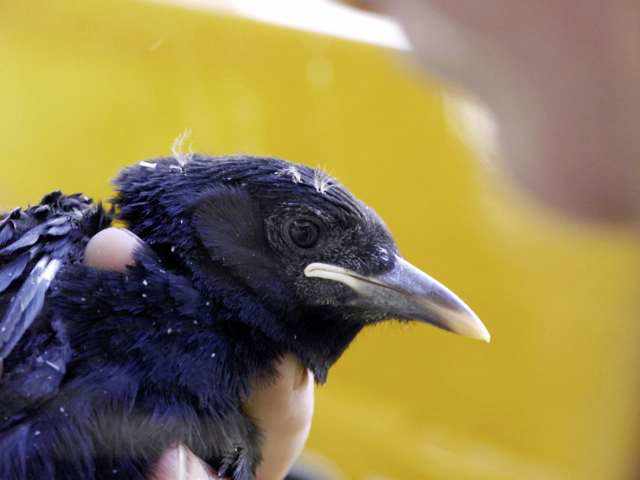The Durrell Wildlife Conservation Trust, the National Trust for Jersey and the Environment Department are celebrating the successful mating of a pair of red-billed choughs.
And despite their odd choice of home – a steel beam inside a Ronez Quarry rock crushing house – the proud parents seem to be doing well.
They are now raising a new chick, which has been named Dusty by Ronez workers.
It follows a joint campaign run by Durrell, the Environment Department and the National Trust for Jersey called ‘Birds on the Edge’.
Five years ago two pairs of red-billed choughs were loaned to the project from Paradise Park Zoo in Cornwall and a captive breeding programme began at Durrell.

In 2013 the offspring from that programme went on to be released at the Island’s north coast. Those seven birds were later joined by 13 more at Sorel.
Project leaders said that after just one year in the wild they have three nesting pairs and that one pair now has a healthy chick.
Liz Corry, the chough reintroduction field manager at Durrell, said: ‘It’s not unusual for choughs to nest in quarries or down mineshafts in the wild, but none of us expected them to nest in such an active quarry.
‘Although busy, and noisy, few of the choughs natural predators are likely to worry them in there. We are very grateful to Ronez for helping ensure the birds safety and for their support throughout the project.’
Mike Osborne, the managing director of Ronez, explained that the business had built boxes around their site to encourage the birds to nest and that the company would continue to support the project.
‘The location that Dusty’s parents chose on a steel beam inside our rock crushing house did seem somewhat strange,’ he added.
‘I suppose that shows the unpredictability of nature.’
Dr Glyn Young, a conservation biologist at Durrell said it was amazing for birds raised in captivity to breed so quickly.
‘This is a positive step for the restoration of Jersey’s coastland birds,’ he added.






